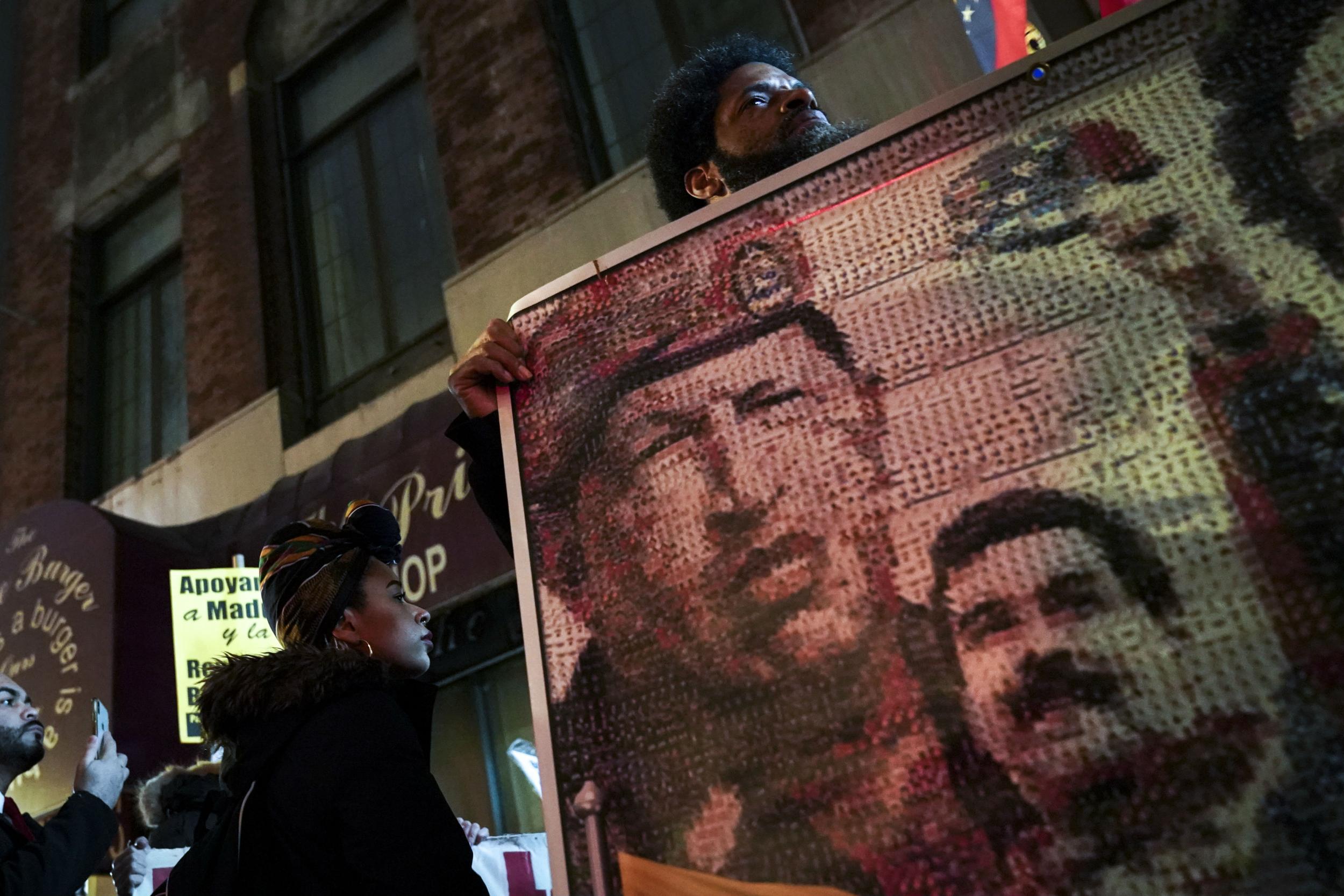Venezuela: Trump says ‘all options are on the table’ as US seeks to divert crucial oil revenue from Maduro
US has ordered recall of non-essential diplomatic personnel

Your support helps us to tell the story
From reproductive rights to climate change to Big Tech, The Independent is on the ground when the story is developing. Whether it's investigating the financials of Elon Musk's pro-Trump PAC or producing our latest documentary, 'The A Word', which shines a light on the American women fighting for reproductive rights, we know how important it is to parse out the facts from the messaging.
At such a critical moment in US history, we need reporters on the ground. Your donation allows us to keep sending journalists to speak to both sides of the story.
The Independent is trusted by Americans across the entire political spectrum. And unlike many other quality news outlets, we choose not to lock Americans out of our reporting and analysis with paywalls. We believe quality journalism should be available to everyone, paid for by those who can afford it.
Your support makes all the difference.Donald Trump has ratcheted up his sabre-rattling over Venezuela, claiming that “all options are on the table” as the US seeks to divert crucial oil money from president Nicholas Maduro.
On a day when Venezuela’s military leadership declared its support for Mr Maduro and denounced America’s interference, Mr Trump responded to a question about possible military intervention by saying: “We’re not considering anything, but all options are on the table.”
Mr Trump’s comments came a day after his administration recognised opposition politician Juan Guaido as the country’s president, after the 35-year-old held a symbolic swearing in for himself on the streets of Caracas.
Canada quickly followed, as did Britain, Argentina, Brazil, Canada, Chile, Colombia, Costa Rica, Paraguay, Peru, Ecuador, Guatemala and the Organisation of American States.
In turn, Mr Maduro cut diplomatic ties with the US and gave its diplomats 72 hours to leave. He also ordered the closure of Venezuela's diplomatic facilities in the US.
Having earlier said it did not recognise the legitimacy of Mr Maduro’s order for US diplomats to leave, the US did on Thursday decide to call home all non-essential personnel. The secretary of state, Mike Pompeo, one of the most outspoken voices against Mr Maduro’s legitimacy, insisted the US embassy would remain open.
It remains unclear how important Mr Trump’s decision to recognise Mr Guaido as president will be. Russia, China, Mexico and Turkey have said they still recognise Mr Maduro.
Mr Trump’s national security adviser, the hawkish John Bolton, revealed the US was seeking to ensure Venezuelan oil revenue goes to Mr Guaido, and not Mr Maduro, who was sworn in for a second term just two weeks ago following an election most of the opposition boycotted. If the US were able to enact such a move it would add further pressure to the embattled Venezuelan leader, whose country’s already ailing economy heavily depends on its oil revenues.
“What we’re focusing on today is disconnecting the illegitimate Maduro regime from the sources of his revenues,” Mr Bolton told reporters at the White House, according to Reuters.
“We think [it is] consistent with our recognition of Juan Guaido as the constitutional interim president of Venezuela that those revenues should go to the legitimate government.”
Of potentially vital importance, earlier on Thursday, the nation’s military leadership declared its support for Mr Maduro and told the US not to interfere.
In a televised speech on Thursday, defence minister Vladimir Padrino Lopez said Mr Maduro was the country’s “legitimate president” and that the opposition was seeking to carry out a “coup”.
“I warn the people that there is a coup underway against our democracy and our president Nicolas Maduro,” Mr Padrino said, according to Telesur.
“As soldiers, we work for peace and not for war.”
He added: “Those of us who lived through the coup of 2002 have it etched into our minds, we never thought we’d see that again, but we saw it yesterday.”
The support of the military will be crucial if Mr Maduro, first elected in 2013 following the death of Hugo Chavez, sees off what is probably the sternest challenge yet to his rule, as his country reels from an economic crisis and financial sanctions.
Millions of Venezuelans have fled the country, while even former supporters of Chavez have criticised his successor and accused him of incompetence and increasing authoritarianism. Shortages of basic food and medicine have become drastic and health experts have warned about weight loss because of insufficient calories, especially among children.
The US, which has long interfered in the elected governments of Latin America, has been at odds with Venezuela for the best part of two decades. It has repeatedly sought to undermine the government of both Mr Maduro and his predecessor.
Many have objected to Mr Trump’s decision to interfere in the domestic politics of Venezuela, which observers point out has never presented a security threat to Washington.
In New York, protesters gathered outside the Venezuelan consulate to show support for Mr Maduro.
“A US-backed coup in Venezuela is not a solution to the dire issues they face. Trump’s efforts to install a far right opposition will only incite violence and further destabilise the region,” tweeted Democratic congresswoman Ilhan Omar.
“We must support Mexico, Uruguay & the Vatican’s efforts to facilitate a peaceful dialogue.”
Join our commenting forum
Join thought-provoking conversations, follow other Independent readers and see their replies
Comments